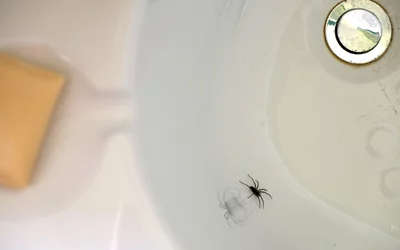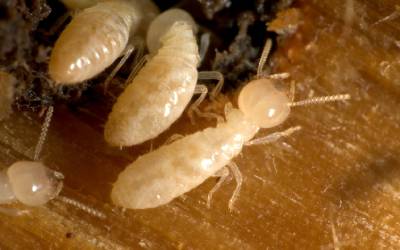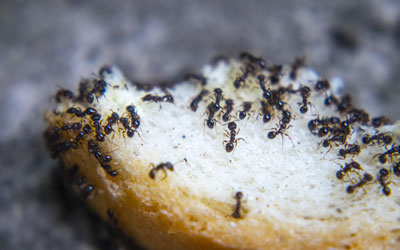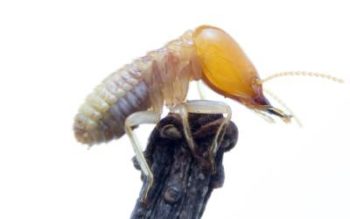 A termite infestation is one of the most feared pest problems in the country. In Eastern & Central Virginia, homeowners and businesses owners start to call us every spring about their potential termite problems. Once the winter starts to wane, Eastern subterranean termites begin to thrive again, taking advantage of all of the moisture that the rainy season has brought. To keep termites out of our homes in the spring, we have to take preventative measures during the winter before any problems start to arise. To learn the best way to termite-proof your property this winter, read on for advice from the experts at Loyal Termite & Pest Control!
A termite infestation is one of the most feared pest problems in the country. In Eastern & Central Virginia, homeowners and businesses owners start to call us every spring about their potential termite problems. Once the winter starts to wane, Eastern subterranean termites begin to thrive again, taking advantage of all of the moisture that the rainy season has brought. To keep termites out of our homes in the spring, we have to take preventative measures during the winter before any problems start to arise. To learn the best way to termite-proof your property this winter, read on for advice from the experts at Loyal Termite & Pest Control!
Why Conduct Termite Prevention in the Winter?
In the case of termites, as well as many other pests, certain seasonal conditions accumulate that allow them to thrive in the next season. Eastern subterranean termites thrive in damp environments because they both soften the ground for tunneling and allow for easy access into wooden structures. Damp wood is damaged wood, and Eastern subterranean termites take advantage of this weakness to plow through in search of healthy wood to feed on and tunnel through. They build networks in the earth to provide pathways from their wooden food source to their underground nests. You will notice mud tubes rise up in your yard if termites are present.
Taking action in the winter to discourage termites from going after your home will prove greatly effective when springtime comes.
Preventing Termites in Eastern & Central Virginia
So, how can we make sure that termites don’t infest our homes this spring? Here are our technicians’ recommended ways to protect your home from termites during the winter:
- Reduce moisture: Make sure that your gutters are in working order and leaving your foundation dry. Also, check around your siding and windows to look for any moisture pooling.
- Store firewood away from your home: Keeping your woodpile at least 20 feet away from your home and elevated off of the ground is a great way to ensure that termites don’t find it. Termite infestations often move from woodpiles to homes.
- Keep mulch away from your foundation: Termites are attracted to many kinds of mulch for their ability to retain moisture. Having this too close to your foundation will give termites a better chance of invading your home.
- Seal any holes and cracks: Your plumbing fixtures, foundation, walls, roofing, and more could have gaps that are allowing termites in. Conduct a thorough home inspection to look for any holes and seal them with a silicone-based caulk.
Professional Help with Termite Prevention
If you feel that you need someone to help with preventative maintenance against termites or would like a professional inspection done to check for termites in your home, look to your local pest control company. At Loyal Termite & Pest Control, we train our termite exterminators to conduct exhaustive WDI (wood-destroying insect) reports and complete termite removal for home and business owners in Eastern & Central Virginia. Don’t wait until it’s too late to prevent termites. Contact us today to receive a free quote!

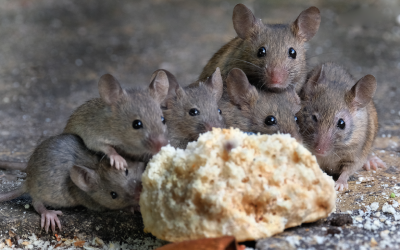 Rodents are one of the most common—and concerning—pests in all of Virginia. Not only do rats and mice spread germs and disease, they also can damage the very structure of your property. Most troublesome of all is the fact that rodents reproduce at a rapid pace. This is why seeing even a couple of rodents could indicate a bigger problem at play, as litters are born constantly. This is why it’s imperative that you learn how to keep mice from turning your property into their own personal breeding grounds in the first place. Read on to learn the best tips to prevent mice from multiplying in your home or business with Loyal Termite & Pest Control.
Rodents are one of the most common—and concerning—pests in all of Virginia. Not only do rats and mice spread germs and disease, they also can damage the very structure of your property. Most troublesome of all is the fact that rodents reproduce at a rapid pace. This is why seeing even a couple of rodents could indicate a bigger problem at play, as litters are born constantly. This is why it’s imperative that you learn how to keep mice from turning your property into their own personal breeding grounds in the first place. Read on to learn the best tips to prevent mice from multiplying in your home or business with Loyal Termite & Pest Control.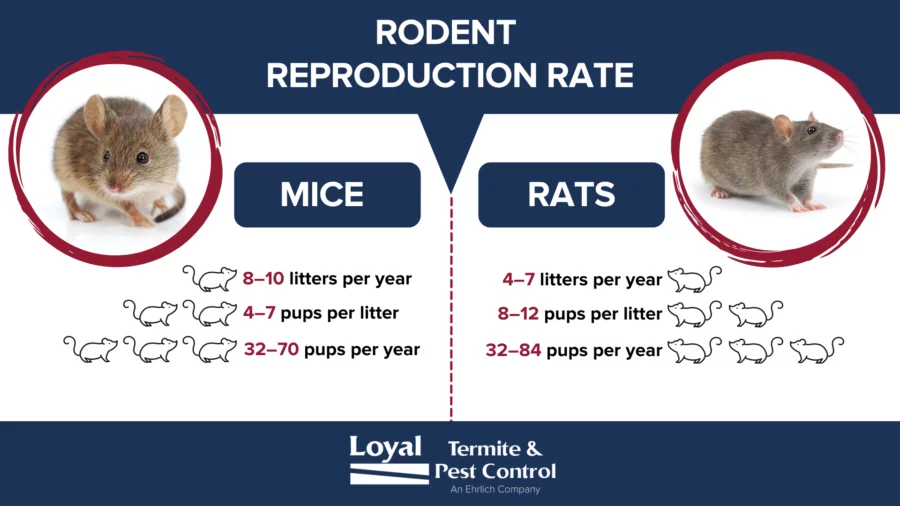
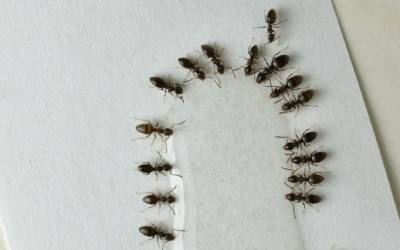 Intertwined with any proper home maintenance routine is a list of important pest control measures. It’s easier than you think to put your home in the right place to avoid pests all year long, but many people just don’t know where to start. That’s where we swoop in to help! At Loyal Termite & Pest Control, we place great emphasis on educating our customers in keeping a pest-free* home through their own work. If you’re looking to learn our three-step pest control technique for homeowners in Eastern & Central Virginia, read on!
Intertwined with any proper home maintenance routine is a list of important pest control measures. It’s easier than you think to put your home in the right place to avoid pests all year long, but many people just don’t know where to start. That’s where we swoop in to help! At Loyal Termite & Pest Control, we place great emphasis on educating our customers in keeping a pest-free* home through their own work. If you’re looking to learn our three-step pest control technique for homeowners in Eastern & Central Virginia, read on!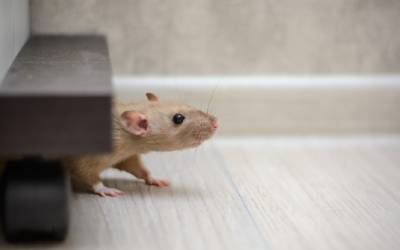 Having serviced Eastern & Central Virginia homes for so long, our Loyal Termite & Pest Control technicians have seen it all. With the great variance in weather trends that we see throughout the year, all sorts of pest problems are possible. This means that in order to stay on top of pest problems year round, our at-home pest control strategies have to change. As we watch this autumn fade into winter, we have to make sure our home maintenance is keeping up with the season. Read on to learn how!
Having serviced Eastern & Central Virginia homes for so long, our Loyal Termite & Pest Control technicians have seen it all. With the great variance in weather trends that we see throughout the year, all sorts of pest problems are possible. This means that in order to stay on top of pest problems year round, our at-home pest control strategies have to change. As we watch this autumn fade into winter, we have to make sure our home maintenance is keeping up with the season. Read on to learn how!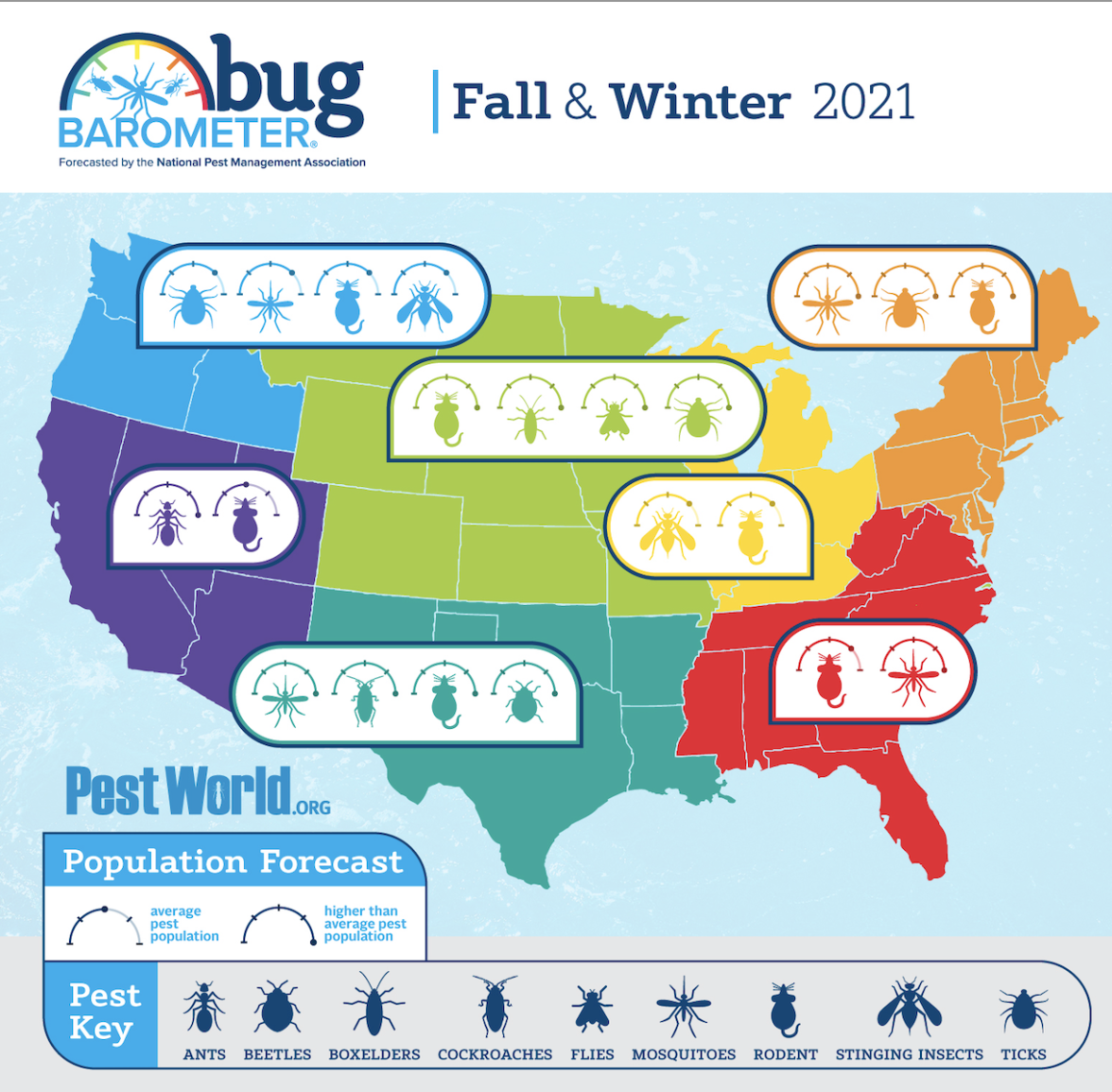
 Many people hesitate to contact a professional pest control company because of a fear of how their service will impact their children, pets, plants in their yard, or the environment as a whole. We love to hear how conscientious our customers are and how much they care about the world around them! That’s why our services in Eastern & Central Virginia are rooted in Integrated Pest Management and grounded in environmental responsibility on macro and micro levels. To learn more about Loyal Termite & Pest Control’s promises to our community, read on!
Many people hesitate to contact a professional pest control company because of a fear of how their service will impact their children, pets, plants in their yard, or the environment as a whole. We love to hear how conscientious our customers are and how much they care about the world around them! That’s why our services in Eastern & Central Virginia are rooted in Integrated Pest Management and grounded in environmental responsibility on macro and micro levels. To learn more about Loyal Termite & Pest Control’s promises to our community, read on!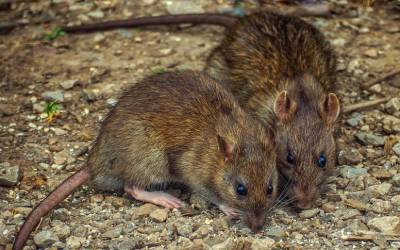 One of the worst parts about dealing with pests, especially rodents, is the concern of potential property damage. Between mice, rats, gophers, moles, and more,
One of the worst parts about dealing with pests, especially rodents, is the concern of potential property damage. Between mice, rats, gophers, moles, and more, 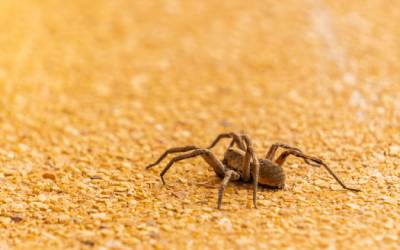 If you’ve seen a brown recluse before, you probably remember its creepy appearance, but if you’ve been bitten by one, you surely remember what it felt like.
If you’ve seen a brown recluse before, you probably remember its creepy appearance, but if you’ve been bitten by one, you surely remember what it felt like. 